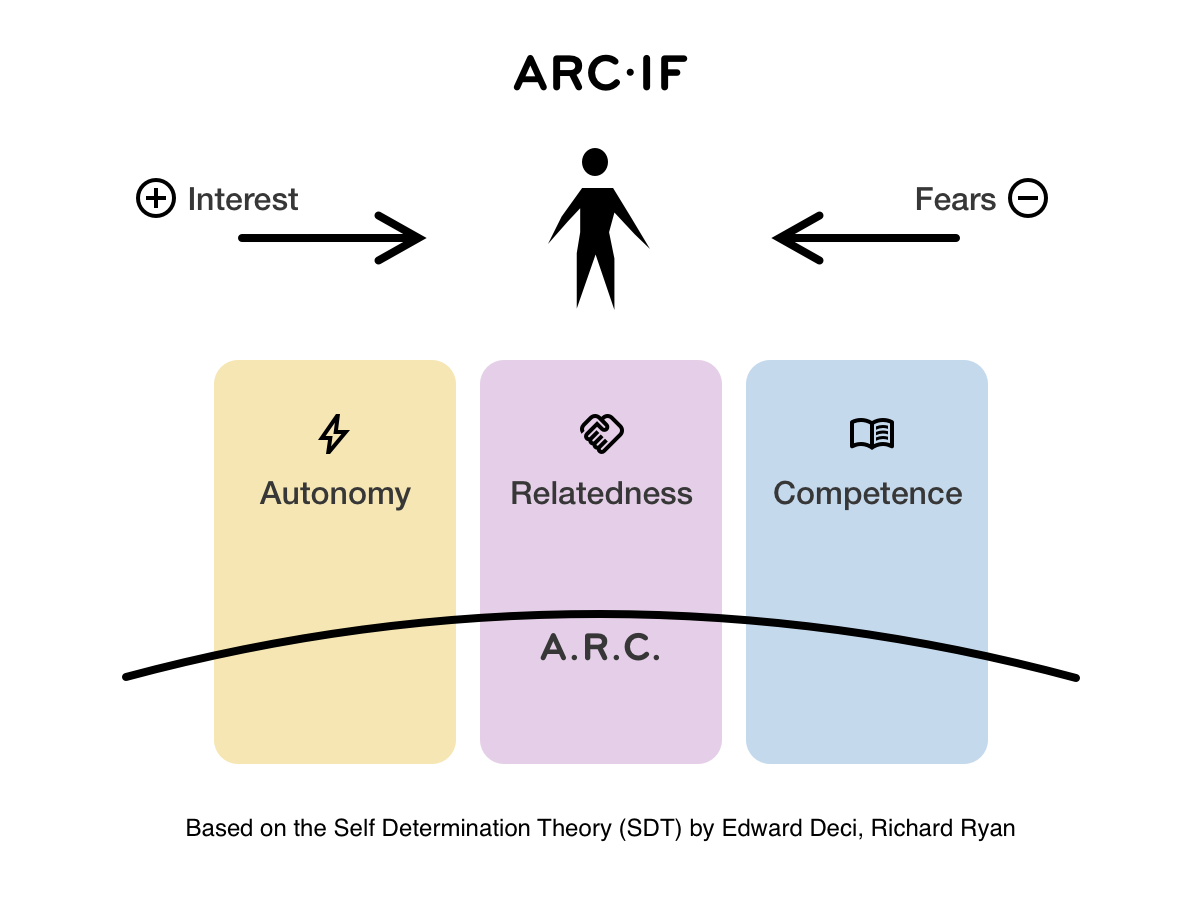While a lot of people remember Maslow’s Pyramid due to its simplicity — even if it has little theoretical basis for it — there’s one model that I’ve found over the years being so foundational that comes up constantly as an effective way to think about what makes people grow and thrive.
The model is called self-determination theory (SDT), and it identifies autonomy, relatedness, and competence as the key psychological factors in thriving and finding purpose and being motivated. It’s been developed by Edward L. Deci and Richard Ryan, which in 1970s have done extensive research on motivation and found key factors that drive intrinsic motivation in people.

The theory has three psychological needs (“ARC”) that can be effectively be used at a personal level for self-reflection, in any team, or organization:
- Autonomy (aka Agency) — people need to perceive that they have choices and that they can self-determine what to do, deciding their own path forward.
- This is why most of the top-down management approaches fail: because there’s a difference between setting a vision and imposing activities.
- Relatedness — people need to care about and be cared for by others. They want to feel connected without ulterior motives.
- This is why competition deteriorates wellbeing and growth in people in the long term, as it creates a conflicting incentive for people to not care about the others.
- Competence — people need to feel challenged, contributing to the cause and being effective. It’s a very close component to the Flow mental state.
- This can be a difficult one to balance because too challenging can make work difficult, but not enough challenge make people under-appreciated they can’t use their full potential.
One interesting aspect of these three elements is how much all of them are related not to extrinsic motivations but intrinsic ones, and more specifically to finding a meaning.
I usually complement these with two external factors (“IF”) that can conditionally influence what people do. Of course here there can be many more, but these have proven to be useful in finding solutions and assessing situations:
- Interest — defines how much interest the person has in doing an activity or participating. This is important because even all the psychological needs are potentially possible, if the interest of the person is low then there isn’t much else that can help.
- Fears — define external negative pressures that can hinder the full expression of the person. While this can be factored into relatedness or autonomy, it can be often identified as an external factor, in which case it’s important to be identified and addressed.
I can add that most of the activities that managers do that go against the three principles above are often related to the manager’s own fears, or the fears of the people above. The usual command-and-control approaches, micro-managing, task-oriented ones come all from the fear of not doing enough, not being good enough and so on.
Further Readings
- S. Fowler (2014) What Maslow’s Hierarchy Won’t Tell You About Motivation
- L. Singer (2016) Self-determination Theory: Understanding Human Motivation for Fun and Profit